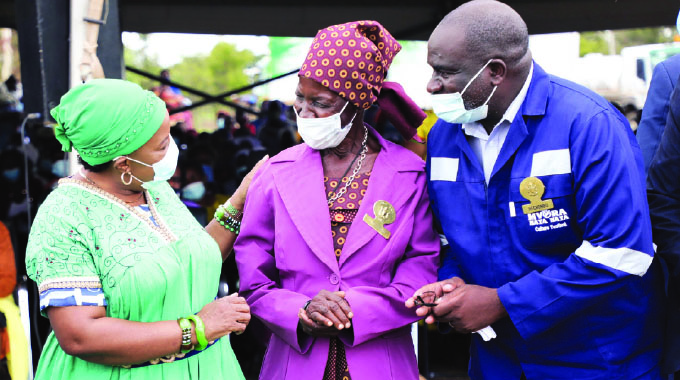SADC chair denounces sanctions on Zim

Ranga Mataire in Lilongwe, Malawi
PRESIDENT Lazarus Chakwera of Malawi, who is also the SADC chairperson, has reiterated the call to have sanctions imposed on Zimbabwe at the turn of the millennium lifted as their continued stay have a knock-on effect on the economy of the entire region.
In his opening remarks at the just ended Extraordinary Heads of State and Government summit held in Lilongwe, Malawi from January 11-12, President Chakwera exalted the region’s united stance in the face of adversities engineered by outsiders.
“We have stood together to defend our region against the Covid-19 pandemic despite our limited resources and the continued discrimination of other regions against ours, and we will prevail.
“We have stood together in our collective call for the lifting of sanctions imposed on our sister member state, the Republic of Zimbabwe, which also have a knock-on effect on the economy of the entire region, and we will prevail.
“And so we stand together now to face down this threat of terrorism and violent extremism in our midst, and we will prevail,” said President Chakwera.
This is not the first time that such a call has been made by the region’s leadership. All other former chairpersons including the late Tanzanian President John Magufuli who openly opposed and appealed for the lifting of sanctions.
President Mugufuli rallied the regional bloc leaders to collectively call for the lifting of sanctions on Zimbabwe including declaring 25 October as SADC’s Anti-Sanctions Day.
President Chakwera praised regional leaders for their collective resolve in fighting insurgents in Mozambique’s northern province of Cabo Delgado.
He outlined the mandate of the region’s Standby Force as to support Mozambique in combating terrorism and acts of violent extremism until terrorist threat is restored, and the environment is secure; strengthening and maintaining peace and security through restoration of law and order in affected areas of Cabo Delgado province.
President Chakwera said the other mandate of the SAMIM was to support Mozambique, in collaboration with humanitarian agencies in providing relief to the population affected by terrorists’ activities, including displaced persons.
“Our collective mission in Mozambique is paramount and ongoing, and the stakes for all of us as Member States are high. What we are fighting for is the very stability of our region. What we are fighting for is our region’s peace and security.
“What we are fighting for is the sustainability of our quest for our region’s integration and socio-economic development. What we are fighting for is our own peace of mind, which is inextricably linked to the peace of mind of our brothers and sisters in Mozambique,” he said.
The Sadc chairman said none of the region’s countries could be at peace as long the people of Mozambique were still forced to choose between leaving food and clothing behind, facing the prospect of starvation and humiliation and staying there to face the cruelty and violence of the terrorists.
“It is therefore no exaggeration to say that our mission in Mozambique is a mission that cannot and must not fail. Even so, we must remember that the success of this mission is not a given. It’s success depends on our resolve, our support, our unity, and our endurance.
“We cannot relent. We cannot regress. We cannot retreat. Our approach to this mission must continue to be multidimensional and comprehensive. It must not only focus on neutralising the threat, but also have a post-conflict plan to rebuild.”
The Malawian president hailed his Mozambican counterpart, President Nyusi for launching a comprehensive Cabo Delgado Reconstruction Plan, which among other things he said seeks to provide humanitarian support to the affected population, including internally displaced persons, and uplift their living standards.
He said the plan seeks to empower the people economically as a preventive measure against radicalisation, especially among the youth.










Comments